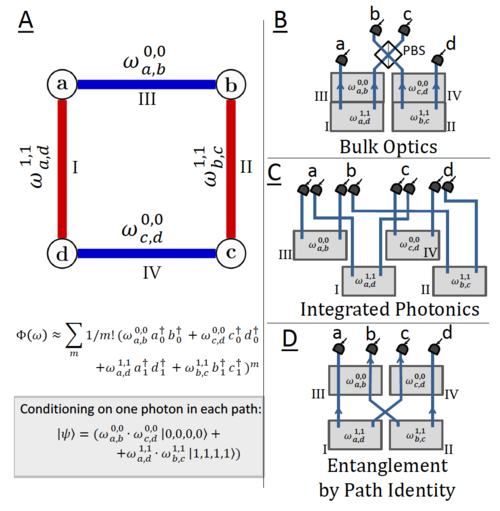Work on machine learning of quantum optical experiments in PRX
Artificial intelligence (AI) is a potentially disruptive tool for physics and science in general. One crucial question is how this technology can contribute at a conceptual level to help acquiring new scientific understanding. Scientists used AI techniques to rediscover previously known concepts. So far, however, no examples of that kind have been reported that are applied to open problems for getting new scientific concepts and ideas. In work in press in the Physical Review X, we present an algorithm that can provide new conceptual understanding, and we demonstrate its applications in the field of experimental quantum optics. To do so, we make four crucial contributions. (i) We introduce graph-based representation of quantum optical experiments that can be interpreted and used algorithmically. (ii) We develop an automated design approach for new quantum experiments, which is orders of magnitudes faster than the best previous algorithms at concrete design tasks for experimental configuration. (iii) We solve several crucial open questions in experimental quantum optics which involve practical blueprints of resource states in photonic quantum technology and quantum states and transformations that allow for new foundational quantum experiments. Finally, and most importantly, (iv) the interpretable representation and enormous speed-up allow us to produce solutions that a human scientist can interpret and gain new scientific concepts from outright. We anticipate that will become an essential tool in quantum optics for developing new experiments and photonic hardware. It can further be generalized to answer open questions and provide new concepts in a large numbers of other quantum physical questions beyond quantum optical experiments. is a demonstration of explainable AI (XAI) in physics that shows a way how AI algorithms can contribute to science on a conceptual level.
News from Jun 09, 2021
